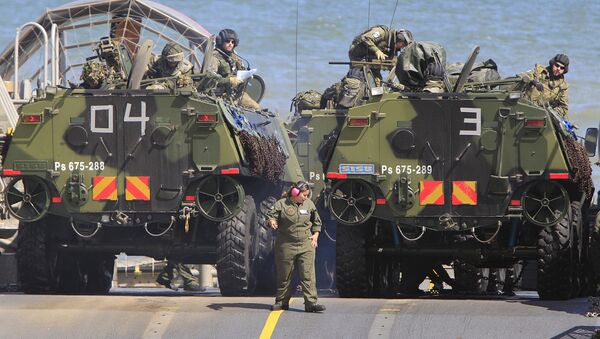This is a bit surprising now that Estonia, Latvia and Lithuania are busily buying arms in Germany, Sweden and the Netherlands, and the European Commission’s President Jean-Claude Junker insists that a single European army would be the bedrock of European integration.
Juncker sees a European defense union as an effective means of “deterring Russia” and staving off the migrant crisis and other misfortunes. In a radio interview in March he said that “a joint EU army would show the world that there would never again be a war between EU countries.”
It still seems that this argumentation has not been enough to persuade the Baltic countries, Poland and Britain to come aboard. Right after Juncker’s statement to German radio, the British government said that defense was a national responsibility and there was no prospect of a European army.
“Our position is crystal clear that defense is a national, not an EU responsibility and that there is no prospect of that position changing and no prospect of a European army," it said in a statement.
Britain, meanwhile, said that as long as it remains in the Union, it will block the creation of a European army.
“We have always been concerned about unnecessarily duplicating what we already have in NATO,” Defense Secretary Michael Fallon said.
When asked if the emergence of a European army would ratchet up tensions along the EU’s border with Russia, which is exactly what the US wants,
Yuri Dolinsky argued that this would simultaneously undermine the roles of NATO and the US on the continent.
German Defense Minister Ursula von der Leyen recently paid a visit to Lithuania where Germany is going to lead a NATO battalion to be deployed in this Baltic republic.
Similar battalions will be stationed also in Latvia, Estonia and Poland.
“Lithuania is buying 386 million euros’ worth of 88 Boxer wheeled armored vehicles in Germany. Still, when Ursula von der Leyen pitched the idea of a joint European armed force, Lithuanian President Dalia Grybauskaite said a flat “no,” and promised to block the idea, insisting that there should be no duplication of NATO’s role in Europe,” Yuri Dolinsky noted.
“The EU will outline its position on the proposed creation of a European army in December, but it is already clear now that the abovementioned countries’ opposition is well enough to block this whole idea,” Yuri Dolinsky emphasized.



